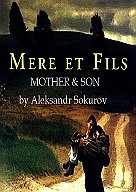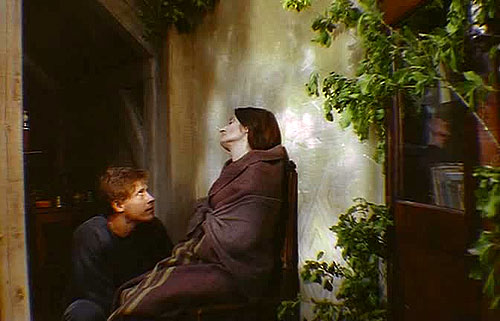Juonikuvaukset(1)
The world's most renowned filmmakers are often referred to as being able to use the movie screen as a painter does a canvas. These terms would certainly apply to Aleksandr Sokurov's film, which uses a combination of mirrors, glass, and special lenses to create a genuine visual feast rarely achieved in cinema. Set in a stone cottage in the uninhabited countryside, a mother and her son recall times past as the woman attempts to hide the fact that she's dying. Neverthless, she is well aware that the boy will soon be left alone in this isolated land. This heartbreaking tale of a mother's last days is filled with somber emotional moments that are perfectly matched with the delicate images created by one of world cinema's strongest voices. (jakelijan virallinen teksti)
(lisää)Arvostelut (1)
Separation anxiety as the creator of a spiritual film or the loss of the most precious thing we never actually had, because even this film, with its admitted surreal stylization, unconsciously admits that extraordinary feelings always exist retrospectively - when they die and pass away (and this backward view is ultimately the work of art itself). What is more interesting is that the conception of nostalgia from the spirit of loss takes on a purely unique cinematic form in Sokurov's works, in which the blurred, sometimes even kitschy romanticized perspective is also blurred by the nature of the loss itself - from the spiritually innermost loss of a mother, it can suddenly become the loss of a kingdom (Moloch) or the loss of power over oneself and the surroundings (Bull)... These three films were created in succession using the same visual language, but few followers of the Spirit and spirituality are probably willing to admit that the Mother leads to Lenin and the Son to Hitler, but the logic of nostalgic search for what is lost leads from purely personal monsters to the monsters of great historic events because there is no doubt that after the death of the Mother, the Son will either grow into a respected director or a dictator.
()

